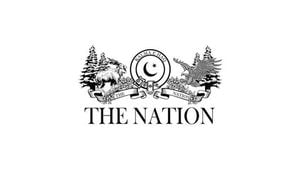Fuel prices are anticipated to experience notable adjustments come March 5, 2025, as the latest data from the Central Energy Fund (CEF) reveals multifaceted trends for motorists across South Africa. While petrol prices are projected to rise, diesel is slated for a welcome cut, indicating mixed outcomes as the nation moves forward.
For starters, motorists can expect petrol prices to climb by 18 cents per litre for Petrol 93 and 5 cents for Petrol 95. This increase follows on the heels of February's significant hike of R0.82 per litre for both grades of unleaded petrol. Meanwhile, diesel prices have shifted favorably, with decreases projected between 4 and 11 cents per litre, reversing earlier predictions of higher costs.
The current calculations show petrol prices at about R22.41 per litre for 95 Unleaded and R22.16 for 93 Unleaded. The fluctuations reflect the broader dynamics of fuel pricing, which hinge heavily on two primary factors: the international oil price and the rand/dollar exchange rate.
According to the CEF, throughout February, petrol saw considerable under-recoveries, initially standing at around 60 cents per litre, but this figure has since dropped to between 5 and 18 cents based on the grade of petrol. Despite the challenges, the slight recovery signifies some positive movement for fuel consumers. Diesel, on the other hand, has displayed resilience with downward price forecasts—a welcome relief for drivers relying on this fuel source.
The current fuel price recovery has seen less aggressive movement than earlier predicted. Motivations behind these shifts include the enhanced strength of the rand alongside relatively stable global oil prices. Brent crude prices, which saw slight movements, recently increased to over $76 per barrel, marking the largest hike since January.
The fluctuations manifest against the backdrop of uncertain market conditions, with both supply and demand pressures influencing prices. Surging stockpiles of crude oil within the U.S. raise concerns of oversupply, which might push prices downward. Conversely, oil-producing nations within OPEC+ are hinting at delaying production increases, contributing to upward price pressure.
Bloomberg's analysis indicates the dollar's instability has rendered commodities, such as oil, more attractive, inadvertently supporting the stronger performance of the rand. This shift is especially noteworthy, as the rand had previously struggled amid market turbulence surrounding South Africa's fiscal policy—even leading to the National Treasury's decision to postpone the 2025 Budget Speech from February 19 to March 12, thereby stirring concerns among economists and market analysts.
“Markets are concerned,” stated Bianca Botes, director at Citadel Global, noting the broader ramifications of the delay on market sentiment. Despite the rand weakening slightly due to budgetary uncertainties, it recovered by the week's end, benefitting from the external factors at play.
Fuel prices, which are intricately linked to the broader economy, also face impending changes should the Government of National Unity (GNU) decide to implement tax raises or adjustments. Finance Minister Enoch Godonwana has signaled potential shifts, including proposals for softening tax hikes, such as freezing the fuel and Road Accident Fund levy for another year. Though, should the proposed VAT hike to 17% be scrapped, alternative revenue avenues may create pressures leading to increased fuel taxes—an outcome both consumers and businesses are wary of.
Beyond these fiscal discussions, consumers remain faced with market volatility as real-time pricing strategies could alter daily rates. Predictions surrounding diesel cuts are particularly promising, offering motorists some respite as the fluctuations play out.
Industry experts have emphasized the importance of comprehensively examining local fuel price determinants, which encompass fluctuations from global oil prices and domestic factors, such as exchange rates and local market dynamics.
With March on the horizon, it is clear fuel price adjustments are influenced by complex global economic currents, local fiscal policies, and shifting supply dynamics. Motorists are advised to remain vigilant, as the official changes to petrol and diesel prices will take effect on March 5, 2025, with significant interest from consumers trying to anticipate their next fill-up.
The upcoming month promises to be pivotal for motorists, with the combined effects of international market trends and national fiscal developments shaping the trajectories of both petrol and diesel prices.



